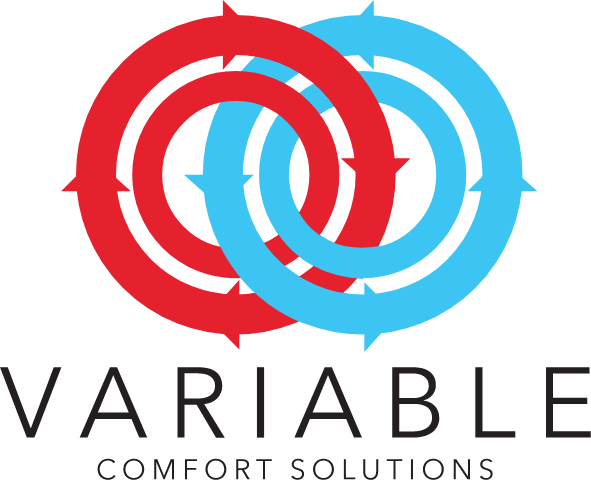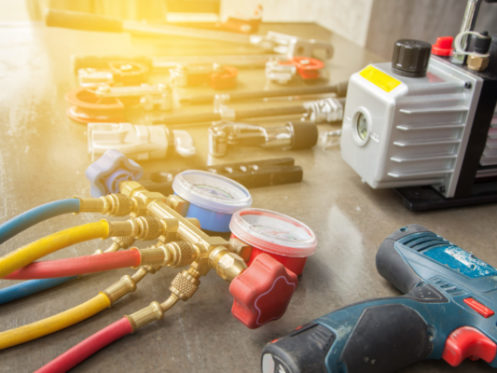What Is a Heat Pump, and How Does It Work?
A: Heat pumps have been used around the world as an effective way of providing heating and cooling. Heat pumps can cool buildings during the summer and can perform the reverse to provide a building with heat during the winter. Heat pumps do not create heat or cold but instead serve to transfer heat energy from one location to another.
How Many Different Types of Heat Pumps Are There?
A: The three main types of heat pumps are water source, geothermal, and air source. Their name identifies where they transfer heat from or to.
Air source heat pumps are generally the least expensive to install and most commonly used. In addition, they work well in moderate climates, using the outside air to perform heat exchange.
Water source heat pumps transfer heat energy via water. Therefore, they require a lake, well, or another water source. As such, they are not as commonly used as air source heat pumps.
Geothermal, or ground-source, heat pumps use the thermal energy stored in the ground to transfer heat during cold seasons and dump heat energy there during hot seasons. Since the ground maintains a constant temperature, ground source heat pumps are very efficient. However, it is more expensive to install them. A point in their favor is that after the initial installation costs, they tend to be inexpensive to maintain compared to other systems.
If a Person Installs a Heat Pump, Do They Still Need a Furnace?
A: The answer depends on a few factors. A furnace and a heat pump will heat your home, but they will do it differently. Air source heat pumps become increasingly inefficient as temperatures outside the home decline below 50 degrees. Cold outside temperatures are generally not an issue for ground and water source heat pumps.
An air source heat pump can work when the outside air is cold, and some models have a heat strip included to augment the unit’s heating capabilities. However, when the heating element is engaged, the heat pump uses much more electricity, increasing utility costs. A furnace generates heat and can do so regardless of how cold it gets outdoors. Therefore, in areas with moderate climates, a heat pump can replace a furnace. However, in regions with temperatures that often go below freezing, homeowners often have a dual system, where a furnace is used during the coldest months to keep electrical bills down.
How Long Will a Heat Pump Last?
A: Heat pumps are used during the summer for cooling and during the winter for heating. As such, they typically last less time than furnaces and air conditioners. With good maintenance, their average lifespan is between 10 and 15 years. During maintenance, the professionals at Variable Comfort Solutions will clean and inspect the unit, look for minor issues, and try to fix them before they become more significant problems to extend the unit’s life cycle. It is also worth noting that heat pumps should be serviced twice yearly because they provide heating and cooling. Traditional systems generally only require a tune-up once a year.
Can Heat Pumps Be Program to Operate Automatically?
A: Yes. Newer models of heat pumps can be programmed to operate automatically. Certain models of programmable and smart thermostats have been designed to work with a gas furnace or a heat pump, allowing for automatic operation.
How Do You Choose the Right Size Heat Pump?
A: Choosing the right size heat pump is important because it can affect the unit’s performance. Factors considered include the building insulation, size, and the amount of heat needed.
Are Heat Pumps Noisy?
A: Modern heat pumps have been designed to run quietly. They should not produce more noise than a boiler, refrigerator, or other modern appliance.
Getting the Best in Heating and Cooling in Huntington, West Virginia
At Variable Comfort Solutions, located in Huntington, West Virginia, we are HVAC specialists who care about our customers. We have operated in the area since 2019 and are proud of our growing reputation.
Our services include HVAC installation, maintenance, and repair. We offer residential and some light commercial services. We install heat pumps and ductless systems, perform indoor air quality testing, and install humidifiers, air purifiers, and dehumidifiers. Contact Variable Comfort Solutions today to learn more about our services and see how we have garnered such a good reputation in our area.


